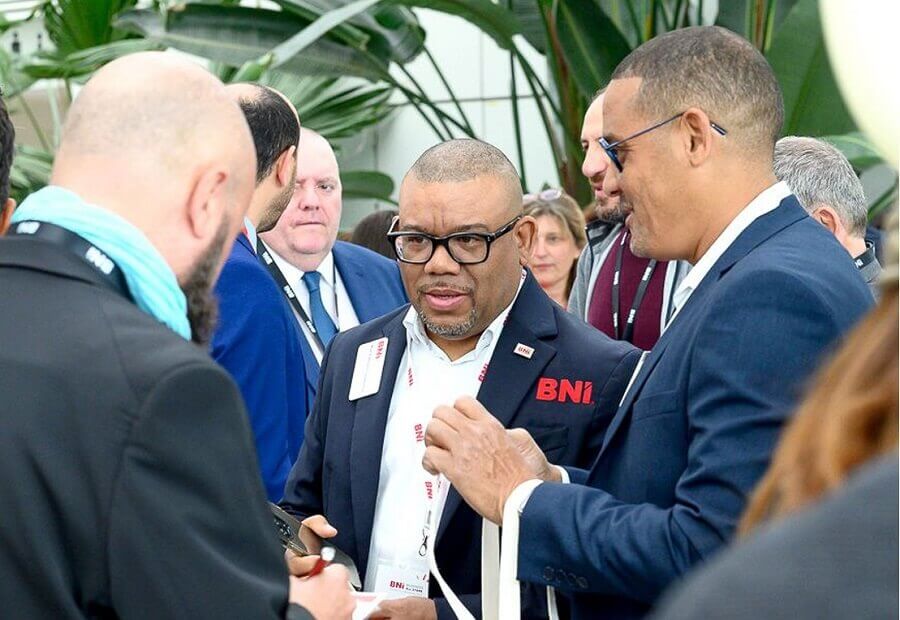We don’t teach networking in colleges and universities hardly anywhere in the world — we didn’t when I went to school, and we still don’t today. I meet so many entrepreneurs who are hungry to learn how to network effectively. Many things about networking are actually counter-intuitive to what business people may actually think. So – how do entrepreneurs learn? Other than through trial and error, I recommend finding someone who can mentor you on how to network effectively.
Recently, I had someone ask me four questions about this process. Here are the questions and my answers to them.
1. Who should your mentors be, and how do you find them?
First you need to determine your values (they can be aspirational values – values that you are striving to achieve), or they can be values that are clearly part of your life now. Next, you need to think about your personal and professional goals. Have you noticed that many successful people tell people to set goals? There’s a good reason for it – they work! So think about yours before you look for a mentor. Once you’ve looked at your values and thought about your goals, then, look for people that you believe embody those values and goals. Try to “network up.” Look for successful people whom you admire, who embody values congruent with yours, and who may be able to help you with your objectives. Look for people who have the characteristics that represent your values, who may have achieved some of the same kind of goals that you have established, and then go to the places where you can actually have meaningful conversations with these prospective mentors. Unless you pay for coaching, trying to get the “sage from the stage” to be your mentor may not be realistic and will definitely not be easy. Talk to people you’ve met, know, and respect. They are the most likely candidates.
2. Should the relationship be formal or informal?
It is not either/or, it is both/and. Both can work. I have had many, many informal mentoring relationships, as well as formal ones. I’d recommend creating a formal mentoring relationship for about a year (if the prospective mentor is willing), then let it transition to something more casual over time. If the mentor is only available informally, go with that. The “right” person is the key. Work with this person as much as is reasonable and respectful of their time.
3. What should you expect from your mentor, and what should they expect from you?
It depends on whether your relationship is formal or informal. In both cases, you want the relationship to be congruent with your values and goals. It always comes down to that. Formal relationships should have structure and processes in place. They should include regular meetings in person or by Skype (generally monthly). There should be a set objective or topic to discuss at each of these sessions. I have found it helpful if the person I’m mentoring sends me questions in advance so I can give thought to them before we talk.
4. How do you both determine whether the relationship is working and also recognize when it is time to move on?
As long as you continue to receive value from the relationship and/or give value to the relationship – it is working. I have had some mentoring relationships where I started as the mentee, but it evolved over time where I was a peer mentoring my mentor on certain issues. That’s when you know you’ve developed a long-term friendship. Ideally, a strong mentoring relationship evolves into a long-term connection and friendship.
Some people tell me they don’t have time to be a mentor. To them I say, “find a way to make the time if at all possible.” You see, every time I was a mentor to someone – it was also a learning experience for me. When I was given topics from people I mentored, I always did a little research or looked through my files to see if there was something I could offer them to help them through the issue. What I realized over time was that I was improving myself while trying to help them.
This really struck home with me when many years ago I coached my son’s elementary school chess club. I remember going into it thinking that it would be great to spend time with my son and his friends – but at no time did I think that I would become a better player by coaching 10 and 11 year olds! I soon discovered that I was wrong. By coaching these young chess enthusiasts, I had to really brush up on my game. More importantly, I had to do my homework to learn the names for many of the moves and strategies that I had done intuitively for years. I was amazed at how my game improved by coaching elementary school kids.
The same is true with mentoring people to network better. The process not only benefits the mentee, it also benefits the mentor.






